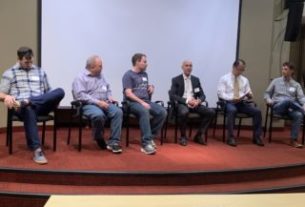I recently attended RelativityFest put on by the ediscovery software provider, Relativity. Relativity is one of the largest discovery software providers. RelativityFest is its extravagant user conference. This year’s version was in Chicago.
According to Relativity, there were some 1793 attendees at this year’s show, which was the 14th annual one. In the Keynote, Relativity’s new CEO, Phil Saunders talked a lot about the evolving data landscape. Short messaging, audio, and video have all combined to create a surge in new data. Saunders noted that there has been an over 305% year-over-year increase in the amount of data that could be subject to discovery.
I am not actively engaged in ediscovery, and it’s not an area I know a lot about. But I wanted to attend the conference and see where providers like Relativity are going, especially with GenAI and its promise. I have speculated before about the potential for ediscovery vendors to branch out into other areas in the legal ecosystem. Ediscovery is one of the few areas in which lawyers have embraced technology out of necessity. That’s because ediscovery is much more time driven than other areas. With ediscovery, hard court or regulatory deadlines have to be met. Overcoming ediscovery challenges is less about how much you can bill. It’s more about how quick you can get the job done to meet court and adversary pressures. This familiarity and adoption of technology by clients and lawyers could pave the way for similar adoption of technology in areas beyond ediscovery.
Some History
A little history might be helpful. Ediscovery exploded on the scene in the late 90s. I first heard of the topic at a conference where the General Counsel of Microsoft spoke. He was visually shaken about the potential of ediscovery to overwhelm the system and
